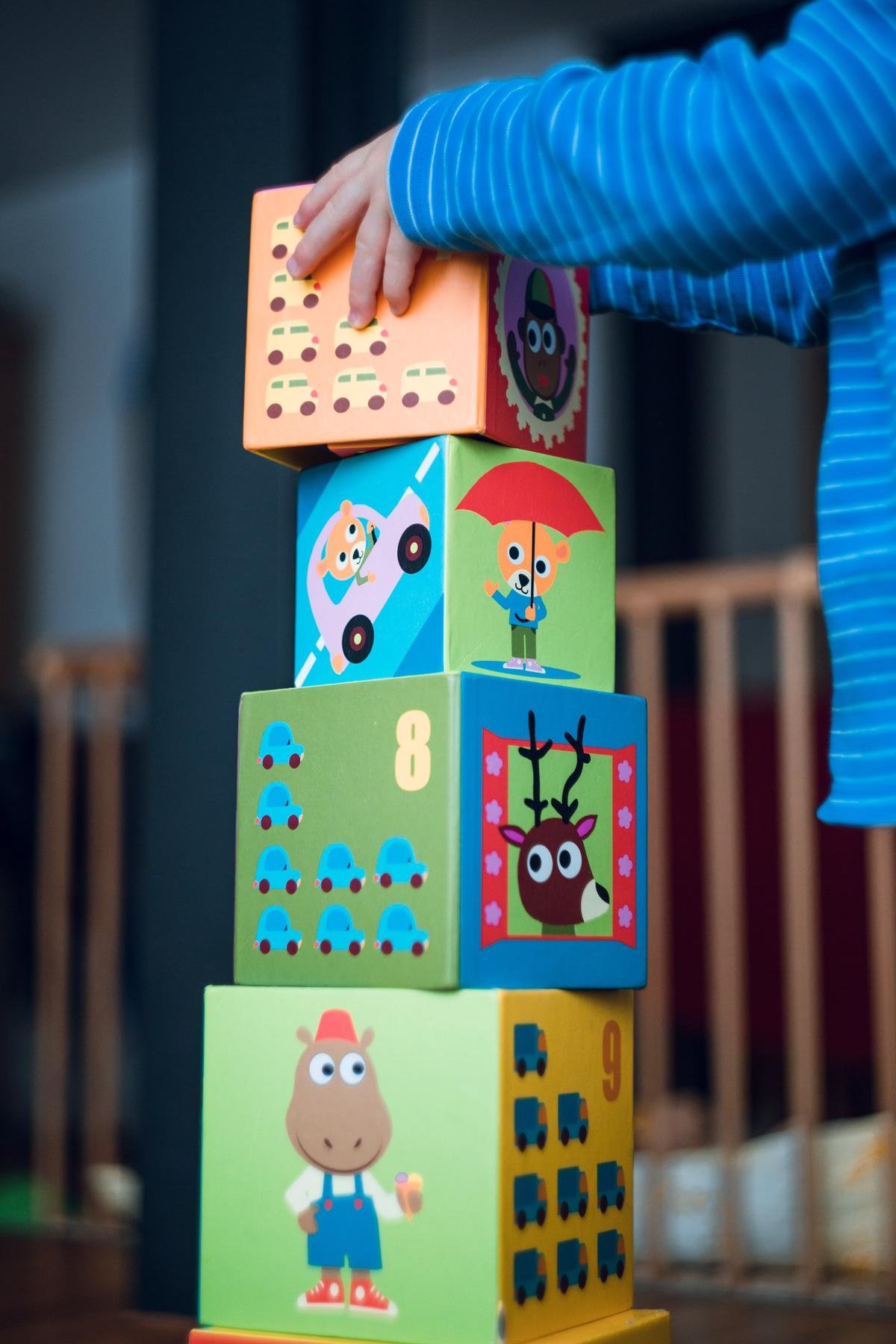
In the broader spectrum of parenting, autism presents a unique perspective bringing forth a treasure trove of strengths and advantages. The journey of an autistic parent is one that is often marked by a heightened sense of understanding, sensitivity, and an ability to cultivate a meticulously structured environment. As we delve into understanding these advantages, the focus mediates towards their keen awareness of unconventional learning methods, ability to foster rich, structured environments, their deep-rooted empathy and listening skills, and the promotion of acceptance and diversity. The discussion showcases how these characteristics, shaped by their distinctive experiences and insightful perspectives, often lead to forming a strong foundation for the upbringing of a child.
Awareness of Unconventional Learning Methods
Being a parent is no easy task. And when you’re a parent with autism, the challenges might seem overwhelming at times. But don’t worry! There are so many benefits to be gained, not just for the child but for the parent as well, specially when it comes to non-traditional learning. With unique perspectives and diverse abilities, autistic parents can bring fresh and innovative learning strategies to the table. Today, let’s discuss how autistic parents can foster non-traditional learning in their children.
To start, autistic parents typically excel in specific areas of interest, often termed as ‘splinter skills’. These exceptional abilities in specialized fields can open up a world of knowledge for children. Parents can use their distinct interests and skills to teach children in a profound way that a traditional school setting may not be able to achieve. For example, if a parent is particularly skilled in music or coding, they can introduce their child to these domains and the child could develop a great passion in these areas too.
Next, autistic parents are likely more attuned to diversified learning styles given their experiences with their own unique learning needs. They can introduce a variety of learning methodologies to their children, including visual, auditory, tactile or combination strategies. Most importantly, these parents can identify and cater specifically to their children’s learning style much earlier, fostering a love for learning that suits their child best.
Moreover, the precision and attention to detail that many autistic parents possess can lead to comprehensive and detailed explanations when it comes to teaching. This can be incredibly beneficial in breaking down complex ideas for children and providing clear, step-by-step instructions. It’s something that can turn daunting ideas into manageable chunks, making learning a more enjoyable experience for children.
Autistic parents also bring a unique acceptance and celebration of differences. Understanding the significance of being divergent, they can instill in their children the confidence to learn in their own unique way and pace. This reassuring environment boosts a child’s confidence and fosters a healthy attitude towards lifelong learning.
Lastly, autistic individuals often understand firsthand the challenges of social stigma. They can utilize this perspective to teach their children about acceptance and empathy, an impressive non-academic lesson that might not be learnt easily in conventional education settings.
In a nutshell, the distinct attributes of autistic parents present not just challenges, but vast opportunities for their children’s learning journeys. By injecting their unique skills and alternate worldviews into the educational process, they can facilitate non-traditional learning that is both enriching and engaging. So let’s honor these unique contributions, and continue to support and learn from the experiences of autistic parents as they navigate the complex but rewarding world of parenthood.

Ability to Foster a Rich and Structured Environment
The Powerful Strengths Autistic Parents Bring to Structured Environments
Parenting is always a fascinating journey filled with numerous challenges and rewards. For autistic parents, this journey takes on an additional layer of unique experiences that can yield a profound impact on their children. One of the commendable aspects of autistic parents is their extraordinary ability in creating a structured and harmonious environment at home.
Autistic parents are known for their unparalleled attention to detail. This meticulousness translates into the ability to create an organized living space, which results in a calm and predictable environment. Having a structured home is beneficial for all families, especially for children with Autistic Spectrum Condition (ASC), who flourish in predictability. This knack for structure can also make everyday activities, routines and schedules perfectly synchronized and meticulously planned.
Most autistic parents have tendencies towards systematic thinking, a characteristic that significantly contributes to skill development in children. Once they identify their child’s interest and passion, they can build a systematic approach and routine around nurturing that skill. The outcome? A child that feels engaged, valued and more likely ready to excel in their chosen area due to the depth of their training from an early age.
A well-structured environment extends beyond just the physical home – it also encompasses the emotional realm. Autistic parents usually have diverse methods of emotional expression and understanding, giving them the potential to foster an emotionally literate household. This could lead to better communication and conflict resolution among family members, creating a positive atmosphere of mutual respect and emotional awareness.
Moreover, many autistic individuals value clear and direct communication, making them effective in giving instructions and rules at home. They provide guidelines that are transparent, succinct yet comprehensive, cutting down on misunderstandings and promoting better cooperation within the family. This clarity in communication can also prevent the common parental problem of overly complicated instructions, ensuring their children understand the given tasks and expectations.
Lastly, autistic parents are often fixated on fairness and justice. They are highly sensitive to issues of equal treatment and fairness, imparting them on their children. In turn, heightening their sense of justice and creating a profound respect for equality amongst siblings and peers.
This exposure to orderly structure, direct communication and emphasis on fairness imparted by autistic parents can arm children with skills extending far beyond their home life. These qualities or ‘life-lessons’ resonate well in succeeding in the broader society – from excelling academically to thriving in a work environment later in life.
So, the next time you look around your home as a parent, consider the amazing contribution a slice of structured environment coming from an autistic perspective could bring about for you and your children. Remember, each parenting journey is unique, weaving a tapestry of experiences that are shared, learned and cherished. Precisely for this diversity in parenting, families across the spectra can thrive, learn, and grow together.

Strong Empathy and Exceptional Listening Skills
The Distinctive Power of Autistic Parents: Listening Skills and Empathy
In today’s dynamic world, having another set of abilities or possessing a distinct perspective often translates into getting an edge. That’s especially true for parents navigating the ever-changing seas of child-rearing. Every parent carries a unique toolbox of skills, traditions, and values that directly impact their children’s lives in some profound ways. Among these parents are those with autism, who often leverage their inherent listening abilities and exceptional empathy to create a rich and rewarding family life.
One compelling advantage that autistic parents may have is their deep-rooted capability to listen mindfully. For many on the spectrum, auditory processing is an area of heightened strength. This allows them to pay attention to the slightest details in a conversation or situation, including their child’s non-verbal cues, verbal expressions, and emotions. With this careful, considered type of listening, they’re more inclined to understand, support, and nurture their children’s unique needs and personalities, paving the way for deep, heartfelt communication within the family.
Moreover, while people with autism might experience challenges in deciphering social cues, their potential to empathize is just as strong as anyone else’s, if not stronger. Autistic parents are often highly empathetic, capable of feeling immense empathy not only for their child but for all living beings. Their children, in turn, soak up this heightened sensitivity, valuing empathy as a critical trait. This empathy fosters a sense of emotional intelligence and compassion within the household, equipping children to approach the world with kindness and understanding.
Additionally, the structured approach and systematic thinking inherent with many autistic parents wonderfully lend themselves to child-rearing. They tend to create highly organized environments that run like well-oiled machines. Such a structure may appear to be rigid but effectively instills discipline and orderliness in children, particularly those with Autistic Spectrum Condition (ASC) who typically thrive in predictable, structured surroundings.
The ability to think systematically also enables autistic parents to break down complex concepts into manageable chunks for their kids, making children more adept at problem-solving and boosting their cognitive development. Clear and direct communication, another characteristic trait of those on the spectrum, provides consistency and clarity to a child’s world, leaving less room for misunderstandings or mixed signals.
A significant quality imparted by many autistic parents is a strong sense of fairness and justice. This focus instills moral values in children, teaching them the importance of equality, respect, and integrity. As the children grow up, they can carry this ethical compass with them, greatly influencing their decision-making process and interpersonal relationships.
In a societal landscape often focused on neurotypical norms, recognizing the unique upbringing autistic parents can provide is vital. Their inherent abilities, including deep listening skills, empathy, systematic thinking, and a strong sense of fairness, can shape their child’s development in enriching ways. Thus, we not only appreciate the journey of autistic parents but also celebrate the lifelong skills and qualities they foster in their children from a beautifully unique perspective.

Promotion of Acceptance and Diversity
Promoting Peer Interaction and Communication
Parents on the autism spectrum are marked by their innate perceptive skills that can help foster their children’s social development. They can subtly encourage peer interactions, model effective communication, and teach essential social skills. With a deep understanding of the importance of peer interactions, autistic parents can help their children develop meaningful friendships while respecting their peers’ diverse backgrounds.
Expanding Cultural Awareness
These parents often have an innate tendency to dig deep into subjects, which includes understanding cultures, traditions, and practices. They can help nurture cultural awareness and respect for diversity simply by sharing their own explorations with their children. This broad learning outlook can inspire kids to develop a genuine appreciation for cultures that differ from their own, promoting a diverse and inclusive mindset.
Incorporating Individualized Learning
Autistic parents, using their unique understanding of individual learning styles, can design homeschooling techniques tailored to suit their children’s abilities. Their detailed approach to imparting knowledge helps in encouraging the children’s individual talents, while still maintaining a curriculum that is comprehensive yet adaptable.
Promoting Acceptance Through Open Conversations
Autistic parents, often driven by a strong sense of justice, encourage acceptance and diversity by initiating open conversations about differences in their household. Talking about various diversities such as race, religion, disabilities, and neurodiversity, helps children understand that being different is not just okay, but it’s normal and to be celebrated.
Building Resilience and Coping Skills
Parents with autism come equipped with an array of coping strategies that they’ve perfected over a lifetime of personal experiences. By sharing these strategies, they can help their children navigate adversity and challenges more effectively. This transfer of information fortifies the child’s resilience and equips them with a well-rounded set of coping skills for the future.
Teaching Conflict Resolution
In dealing with conflicts, autistic parents impart how to be straightforward and clear in their communication. They model logical processes in resolving conflicts, infusing their children with a sense of fairness and a knack for problem-solving.
In Conclusion
Surviving and thriving as an autistic parent involves embracing unique strengths and using them to nurture children in a supportive, empowering environment. But the implications go beyond family life. Autistic parents also have the ability to contribute mightily to a culture that values acceptance, diversity, and a celebration of differences, paving the way for a more compassionate society.

Photo by kellysikkema on Unsplash
The journey of an autistic parent is not only distinct but also rich with various facets compelling us to pause and appreciate how diversity contributes to the complexity of human experience. Autism, therefore, is not a roadblock in parenting, but a path that leads to an array of unique parental qualities. From fostering unconventional learning methods and creating organized environments to practicing enhanced empathy and promoting acceptance and diversity, autistic parents often encourage an upbringing filled with understanding and respect for individuality. They elucidate that a difference in the neurological construct does not hinder the capability to parent effectively; instead, it enables a mode of parenting ingrained with richness, understanding, and diversity.





